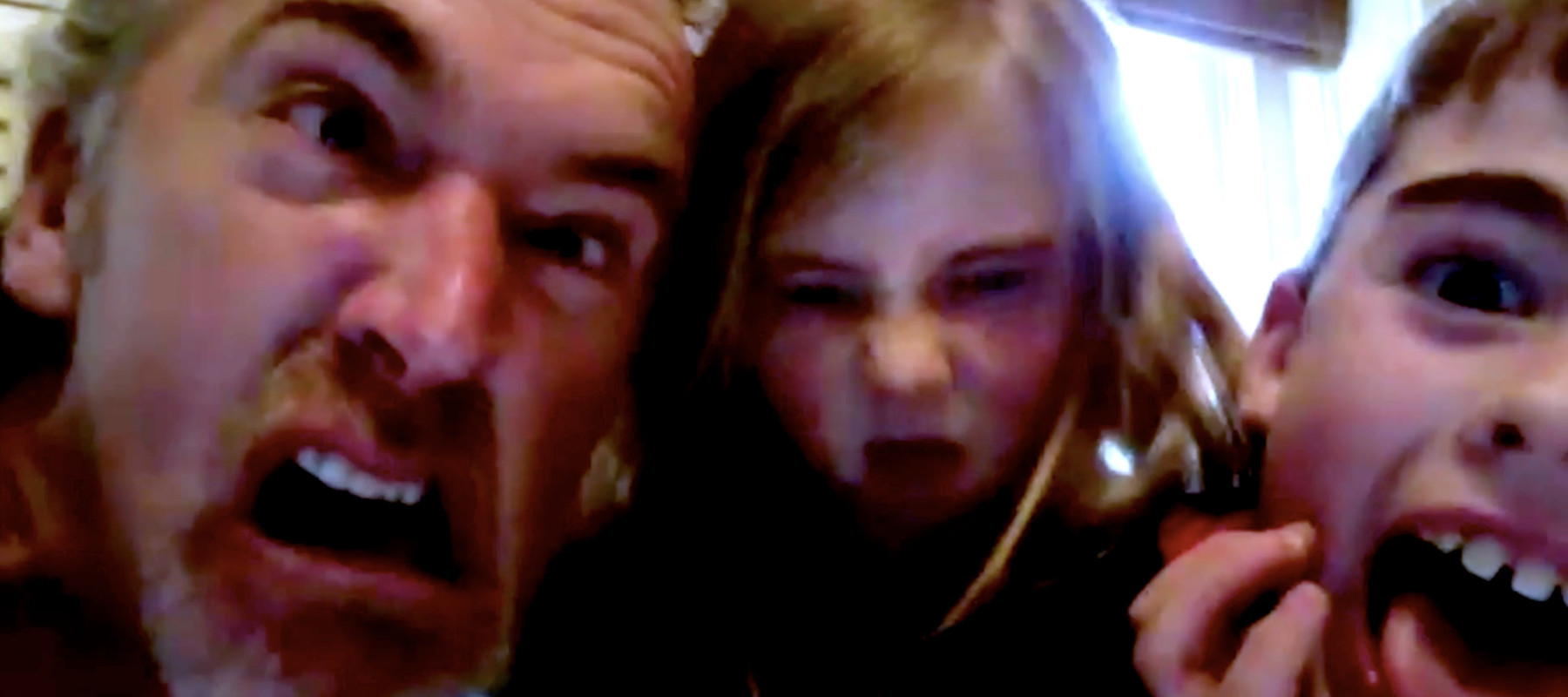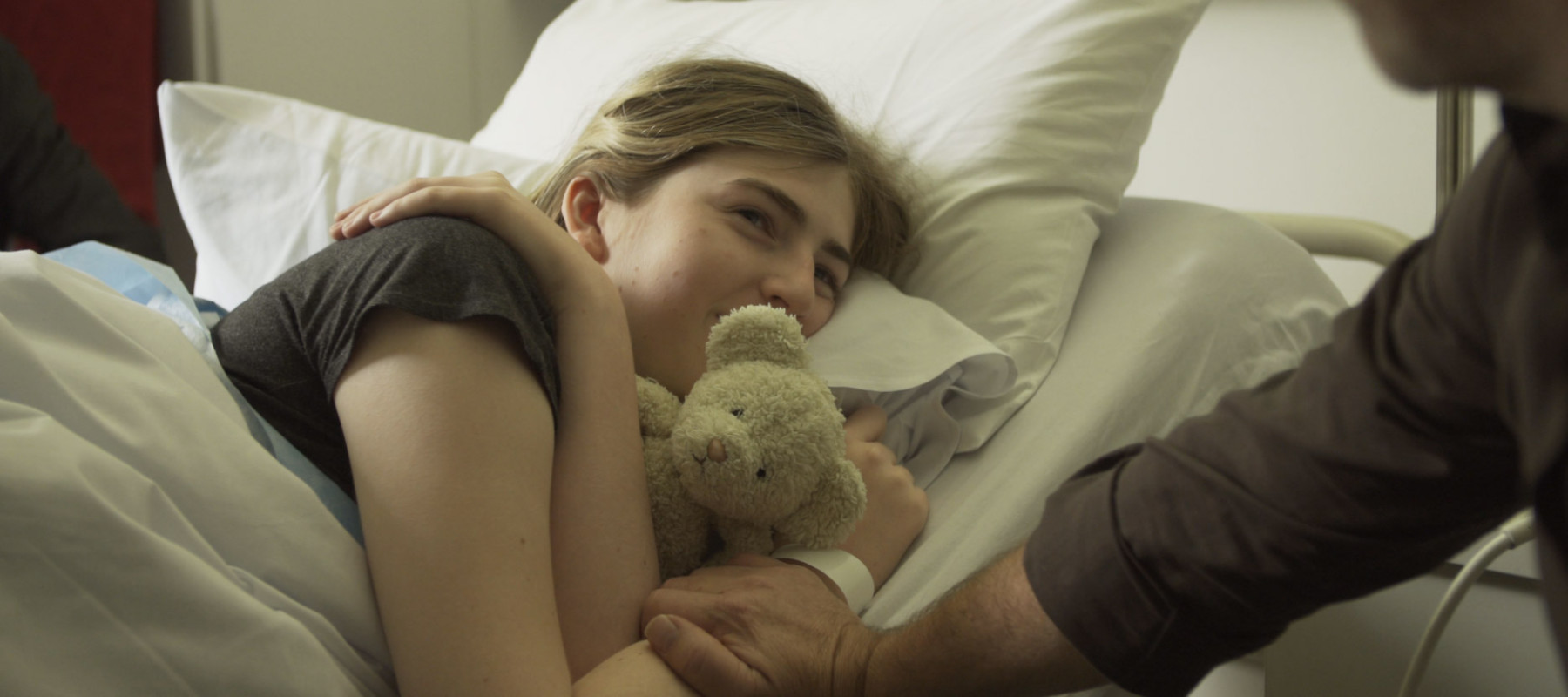The beautiful thing about watching a film with other people is the ability to discuss, self-reflect, and share thoughts and experiences - which is integral to promoting understanding and change.
Transcend Australia and the Dreamlife team have partnered together to produce a discussion guide as a starting point for post-film discussion. We encourage you to gather with friends or family, host a watch party and use this guide.
Are you a teacher? Transcend Australia and the Dreamlife team have partnered together with an education curriculum writer Keren Shlezinger to produce a schools discussion guide as a starting point for post-film discussion in the classroom.
Georgie Stone:
1. Tell us about the title of the film; what does it mean for you?
For me, the title has a double meaning. The story we are telling has me sifting through my memories, looking back at my past as I drift off to sleep. But the title also refers to me reclaiming agency over my life. Getting to a point where I can stop living for other people, and finally live my own life.
2. What was the filmmaking process like for you?
The filmmaking process was really wonderful for me. It’s rare that I’ve had the opportunity to be in control of the telling of my story, but I always had that here. We didn’t know exactly what we were making at the beginning, so our ideas began to evolve and solidify the more footage we shot. But it was a very collaborative process, which I loved.
3. What age were you when you had gender affirmation surgery?
I was 18, which is the youngest age you can have the gender affirming surgery in Australia. You have to be a legal adult to consent to the surgery. Not all transgender people want or can have the surgery. It is a personal decision - having surgery doesn’t make your identity more legitimate. For me, it was a decision I’d made so I could feel more comfortable in my body.
4. In the film, you say: “I don’t want this operation to change anything, because I’m really happy. I don’t have the body that I want, but I’m still female … Obviously I want it to change my body, but I don’t want it to change people’s perceptions of me. I don’t want it to change how I live my life. I still want to be Georgie.” If there was any change at all, how did that feel after the surgery?
At that moment, I was so overwhelmed by everything that was happening around me - school, law reform, this massive surgery looming - and I wanted it all to stop. I wasn’t scared of having the surgery - I still wanted it - but I was scared of everything in my life changing. Trans kids have to carry so much, and I felt like I was buckling under the weight of all of it. But after the surgery, I felt like I could finally breathe out. I had been waiting for it my whole life, but at last, I could move forward.
Rebekah Robertson, mother:
5. You were so amazingly supportive, is this common for trans young people?
Unfortunately, supportive families are still the exception rather than the rule. In Australia, a study by Telethon Kids revealed that almost 66% of young trans, gender diverse and non-binary people have reported not being supported by their families. To me, that is an abrogation of responsibility by parents. It says to me that some parents believe they can pick and choose what challenges they will accept. It says they prioritise their own comfort over the wellbeing of their kids. It tells me their fears and prejudices are doing the parenting. They are not responding from a place of love, listening and respect. But it also says to me that there is not enough education, cultural/social acceptance of diversity or clear pathways for parents to make better informed and more compassionate parenting choices. Learned responses, conditioning, and political or religious attitudes that are negative and intractable are central to this and is very different from not knowing or understanding about gender diversity but being open to and wanting to support your child.
That said, I’m pleased to see the huge shift in the understanding of those that do support their children. Many of the families that I speak to are so proud of their children, want to find the best information and support possible for their child and are aware that their response becomes part of their child’s positive experience of themselves. I’m also pleased to see more fathers or those in a fathering role being the person to seek out support and information. Ten years ago that never happened unless they were a single parent. Now we have more parents taking equal responsibility and an active interest in their child’s needs, although there are still way more mothers doing that emotional and practical labour. I’d like to see that change faster.
6. What support did you receive to be able to be so supportive of Georgie?
Early in our family journey, there was almost no support. However, once we reached out to the Royal Children’s Hospital, Melbourne, we had two health professionals who enabled Georgie to talk about her experience of herself without judgement and that was huge for her. It was important that we began to learn more about gender diversity so we could navigate a very hostile world more safely for Georgie. That professional support has improved markedly over the years. But clearly it’s still very under-resourced and there is no consistency in access to affirming care around Australia or indeed the world. This must change.
I founded Transcend Australia in 2012 which was the first parent led peer support network for trans kids and their families in Australia. I had a real need to connect with other families and I knew there were others out there who also needed that connection. Support from community is really important when often our own families do not fully understand the challenges, are unsupportive or simply hostile.
As time has gone on, and we’ve been officially on this journey since 2007, our network of support has become vast. But we have lost relationships along the way because they have not respected Georgie and/or our support for her. Setting those boundaries is hard, but necessary. To grow up feeling they are worthy of love and protection, and to see their family stand firm in that is vital to their sense of pride and dignity.
7. What advice would you give to other parents of trans kids?
This is such a massive question! Prioritise your child over your fear. Set healthy boundaries around who you disclose to, why and when. Your child must be included in all decisions about them, their well-being and wishes. Take their lead. This does not mean you cannot parent your child, it means you are actively listening to them and respecting their perspective. Some folks believe that even allowing a conversation about gender diversity is in some way endorsing a particular course of action. It’s not. It means your child can talk to you or a health professional without internalising the shame that is so often placed on innocent shoulders. It means good choices can be made that are right for that person. Heal yourselves and love your children more than you desire the good opinion of those who are not in your shoes. Be fiercely loyal to your child. Teach the world to respect them by your example.
8. What were some of the major challenges you encountered in your journey of affirming Georgie?
This is such an enormous question that could be answered faster by naming what challenges we didn’t encounter! But here goes with what our challenges were. Some things may seem small, but it all builds up to paint a picture of a young person who was forced to battle to be herself all her life. She still has that battle.
In point form:
Finding access to reliable information
Finding health professionals that were knowledgeable and non-judgemental
Helping Georgie to be safe and respected at school
Educational settings not being prepared to support a trans kid
No access to a safe bathroom at school
Gendered EVERYTHING at school
Bullying: No consequences for bullies or addressing/education around bullying in school
No safety or inclusion in school sport or club sport outside school
No safety and inclusion for school camps
Exclusion from birthday parties and sleepovers
Disclosure: when it’s safe or beneficial and when it’s not. Those decisions have consequences.
Access to research and studies about best ways to support your trans child
No guide books or stories for parents that weren’t terrifying
No positive information about the lives of trans people anywhere online
No positive representation of trans people in the media or any form of storytelling whatsoever
Poorly trained General Practitioners and mental health professionals outside of established gender services.
No books for kids to see themselves in or for other kids to learn about diversity
Educational settings are completely ill-equipped to deal with any kind of diversity, let alone gender diversity
Systems where personal information and identity documents are or have been unfriendly to trans folk such as birth certificates, banks, medical records, etc
Family members, friends or community being unsupportive, blaming, or openly hostile towards you and your child
Isolation, marginalisation, discrimination
Laws which prevent good outcomes for trans kids and in fact harm them directly.
The political discourse which uses trans kids' lives as dog whistles and political footballs
Campaigns which continuously throw trans kids under the bus
Programs designed to support LGBTIQ+ kids in schools are defunded and misinformation destroying the potential for more to replace them.
Reporting in the media about trans issues is often sensationalised, especially if the story is about children. Reporting is often ill-informed, disrespectful or outright abusive. No real recourse for complaints or consequences.
Initially hard to find community support or connect with other families
Here are some that we didn’t encounter ourselves but remain an issue for everyone:
Conversion practices are still legal in many places
The harm done to the trans community by Police
Many sections of the trans community feeling further marginalised by racism, ableism or having intersecting experiences of discrimination.
There is no nationally consistent provision of medical care for trans kids in Australia (or indeed around the world).
On a national level, there is no positive leadership on trans issues. There is no plan to support trans people in any way. We are only hearing fear based “debate” on why there shouldn't be support. We see political parties of all stripes grappling with trans rights internally and those divisions spilling into the public political domain in very destructive ways. Every political party must do better. No exceptions there.
9. When you spoke at the Australian Parliament about all the challenges that families and young trans people face, within schools, health services or families, it gave a real sense of how hard it was. What message would you give to people now, when you reflect on these challenges and how could others learn from that so that they don’t make it hard for other families and trans young people?
We have not achieved everything we need to yet. And whilst we’ve made huge strides in the past decade, the voices of anti-trans interest groups are being amplified in mainstream media. The only thing that you can guarantee is your effort. Persistence is a thorn in the side of our adversaries.
Be fabulously, unapologetically and spectacularly proud of your kids. When you support your child, your child grows strong and you bring your whole community with you. Nobody can change that no matter how hard they may try. We will never abandon our children to bigotry.
You are not alone. Work alongside your allies. Advocacy is a marathon not a race. It’s also a relay. You have a team you can rely on. Go hard, pass the baton, cheer others on.
Never give up.
10. Why did you continue to fight after Georgie received the court decision that she needed to access treatment?
There are a number of reasons why we continued to fight for law reform. Firstly, we were in a unique position to do so. We had been through every phase of the court process, including a partially successful appeal which set a precedent and improved access to puberty-blocking treatment Australia wide. Georgie had also been granted leave by the Family Court of Australia to identify herself as the subject of re:Jamie, as her case was known. That meant that she was the only young person in Australia who had been subject to those terrible laws, entered into the legal system and endured the impact of that process, who could speak publicly about it. Family Court cases are all subject to suppression of identity rules, most especially of minors. This is of course absolutely appropriate in most cases, but Georgie’s inability to share her experiences or have any kind of voice in her own life was damaging to her. She wanted to change what the legal process was doing to young trans people and she didn’t want anyone to endure what she had in accessing the affirming care that was appropriate and life saving for her.
The court process was such an insult to trans kids and their families. It removed the rights of parents to consent to appropriate treatment for their child and it also removed the rights of the child to make those decisions too. It impacted on their rights to timely access to medical care, to bodily autonomy, to personal agency. It was a bad law which made the reality of being a transgender child in Australia an impossible predicament. It made kids feel there was something wrong with them, rather than something wrong with a system of justice that was supposed to protect them. It was harming them.
The legal process to seek medical care was the definition of powerlessness.
Secondly, I was angry about the decision by the Full Bench of the Family Court in our appeal which was handed down in 2013. It meant that families no longer had to go to court for Stage 1 treatment (puberty blockers), which was a good outcome, but were still required to go to court for Stage 2 treatment (gender affirming hormones). This was a ludicrous decision on many levels. On a personal level for our family, it meant we would have to go back to court again to apply for Stage 2 for Georgie, which was a distressing thought. The gains that we had made through law reform offered Georgie no reprieve.
But the decision also meant that the court were viewing the two phases of treatment as completely separate, not part of an overarching suite of treatments which may or may not be required and could be consented to by a Gillick Competent adolescent or a parent. It continued to view Stage 2 treatment for trans kids as a “Special Medical Procedure” despite the fact that it was clearly therapeutic, effective and provided significant relief to the young person. And despite the fact that it was the treatment agreed on by national and international bodies such as AusPATH and WPATH. There was nothing special or unique about it. It was the treatment. So for me, it was clear that transgender medicine and trans kids were viewed as “special” and their rights, agency and dignity were being taken from them for the comfort of people and institutions who were not affected by the impact of their decisions at all. It was clear that fear was driving decisions by law makers rather than science, evidence and justice. It was outright discrimination against vulnerable children and I couldn’t bear it.
So our decision to pursue law reform was personal and also a moment we understood we had to step up for the greater good. We were privileged enough to have had the opportunity to do that. We had been generously given pro bono legal support, we had access to great medical care, we were in a strong position to do whatever we could to pursue justice for trans kids. I felt we had started a process through our appeal which we hadn't been able to complete, because of the Court’s decision. Because we were in the unique position of being able to talk openly about our experiences, we felt compelled to do so. Georgie felt that sharing what she had been through would help her own her own story, but also help other kids. We both were very committed to finishing the job, however it came about, either through legislation through parliament or through another court case like our own. In the end it was the latter, re:Kelvin in 2017. What a great day that was!
11. What perspectives have you gained from parenting a trans kid?
Being Georgie and Harry’s mum has been a huge joy. I’ve loved being their mum and I’m so proud of the people they have always been and have continued to grow into.
In terms of what I have learned from parenting Georgie specifically, that’s huge and almost unanswerable. Her integrity and sense of self, even at a young age, really caused me to reflect on my own understanding of the world and my place in it. I began to see the world, my beliefs, assumptions, prejudices, and privileges differently. I questioned how I move through the world and society and why, what I gave power to and what I refuse to give power to now. But, it would do Harry a disservice not to acknowledge what parenting him has taught me too and integrity, and strength of character, is central to his nature also. He is such a beautiful young man and the best brother in the world.
I’m keen to avoid the well-worn tropes of courage, bravery and inspiration, so I will describe my gains as being energised by two young people who are trying so hard to be true to themselves in a world that attempts to diminish and disempower them. My life with them has made me see deeper into the experiences of others and has made me more curious about the world rather than less. It has also encouraged me to do my own healing, reassessing and becoming a more authentic version of myself.
In the end, what we gain from supporting our kids are happier, healthier children. It’s that simple. No other reward or gain is necessary or has more importance than your child’s wellbeing.
Associate Professor Michelle Telfer:
12. What is Stage 1 and Stage 2 treatment, and why is it important?
“Stage 1 treatment” is a term used in Australia in a legal context to describe pubertal suppression. Pubertal suppression (also commonly referred to as puberty-blocking) requires medications called gonadotrophin-releasing hormone analogues (GnRHa). These medications block the usual progression of physical changes in puberty. Use of puberty blockers in the early stages of puberty reduces psychological distress in trans and gender diverse young people by preventing the unwanted development of secondary sexual characteristics such as breast growth in trans masculine young people, and voice deepening in trans feminine young people. They are important because they have been shown to reduce distress and improve mental health outcomes. When used at the most effective time in early pubertal development, they prevent irreversible, unwanted changes in physical appearance that can lead to a trans person experiencing increased societal stigma, discrimination, social exclusion, harrassment and abuse across their lifespan.
“Stage 2 treatment” is the term used in legal contexts to refer to gender affirming hormone treatment. These medications include various forms of oestrogen used to feminise one’s appearance, or forms of testosterone which masculinise a person’s appearance. Gender affirming hormone treatment is important as it assists in changing physical aspects of a person’s body to better reflect that person’s gender identity. Gender affirming hormone treatment has also been shown to improve the mental health of young people during adolescence and in adulthood.
13. Do trans children have access to medical treatment they need in Australia?
Australia has a system of universal healthcare known as Medicare. It also has the Pharmaceutical Benefits Scheme (PBS), whereby the Australian Government subsidises many medications to ensure they are affordable and accessible to the general population. Medicare allows Australian children, young people and their families to access most forms of medical care in the community and in the public hospital system at low or no cost. Unfortunately, some medications commonly used by trans young people, such as puberty blockers, are not subsidised by the PBS. Similarly, Medicare doesn’t cover trans affirming surgical procedures so they are restricted to use in certain settings for those who can afford them. Currently in Australia, all gender affirming surgical procedures for trans people, including those undertaken by Georgie, are undertaken in private hospitals within an adult care setting.
In addition, the number of clinicians across the health system in Australia who have expertise and experience in providing gender affirming care to trans people is not sufficient to meet the needs of the trans community. As demand for trans healthcare has risen rapidly over the past 10 years in Australia, waiting times for care have increased to levels that prevent timely access to sufficient support and medical treatment. Whilst some states in Australia, such as Victoria, where Georgie Stone lives, are investing significantly in improving access to care by increasing capacity across the health system, this is not universal across the country.
14. Is it common for the families of trans young people to support them to receive gender affirming care?
Georgie’s family are incredible advocates both for her and for the rest of the trans community. We know that having a supportive family is one of the most important predictors of a young person’s outcomes in terms of their mental health and wellbeing. Working within the health system, we tend to see young people who have families who enable them to navigate and access the medical care they need. Unfortunately, we know that there are many young people in the community who cannot safely access trans affirming care as they are not sufficiently supported by their parents or extended family. Many young people without sufficient support risk family rejection or even homelessness and the impact of these experiences can be devastating.
15. Since winning the legal fight for young people to access Stage 2 hormone therapy, what changes have you seen changes for trans, gender diverse and non-binary young people? What changes do you still want to see in trans, gender diverse and non-binary young people’s access to quality healthcare?
The judgement handed down in Re Kelvin (2017) changed the legal landscape for all trans and gender diverse young people in Australia. It was a pivotal moment in trans history in this country, as it allowed young trans people and their families to have the power to make decisions about their healthcare for the first time, without the interference of the Court system. Prior to Re Kelvin (2017) and Re Jamie (2013), all trans young people had to seek authorisation from the Family Court of Australia to access pubertal suppression and gender affirming hormone treatment. This was the case even if the young person was considered to have the intellectual and emotional capacity to consent on their own, their parents both consented to treatment, and their doctors agreed that treatment was in the best interest of the young person. This requirement for Court authorisation was unique to trans healthcare, caused significant distress to families, was time consuming and expensive, and was viewed as unnecessary, harmful and discriminatory.
Since the decision of the Full Court of the Family Court in Re Kelvin (2017), many young people have been able to commence pubertal suppression and gender affirming hormone treatment during adolescence who would otherwise not have been able to do so until adulthood. Research published in 2022 (Turban et al.) demonstrated that this is important, as the mental health of trans adults was found to be better in those who wanted and could access gender affirming treatment in adolescence, compared to those who also desired treatment but were unable to do so.
Whilst Re Kelvin (2017) changed the legal landscape in Australia for the better, trans young people continue to be subject to legal discrimination by requiring both of their parents or legal guardians to provide consent to treatment with puberty blockers and gender affirming medication. This is the case even if the young person is considered to be competent to consent to all other types of medical treatment or procedures they need. This situation further disadvantages the most vulnerable trans young people in our community. Those who do not benefit from a supportive family are also denied medical treatments when one or both parents refuse to provide consent, if a parent is estranged from the young person, their location is unknown or it is not safe to pursue consent from a parent due to a past history of family violence or abuse.
16. As a medical professional, what changes would you like to see in how trans and gender diverse young people receive health care?
I would like to see trans young people having the same legal rights as all other young people in Australia when it comes to accessing the medical care they need. It’s as simple as that.
17. Where can families seek medical guidance if they are unsure how to support their trans or gender-questioning children, including where this may conflict with the cultural or religious expectations of their communities?
This depends on where someone lives and the communities in which they reside. In Australia, there are a number of peer and family support organisations, such as Transcend Australia, who can provide appropriate resources and assist with healthcare navigation.
18. What have you learnt from working with trans, gender diverse and non-binary young people?
I have learnt so much from trans young people and their families. I have seen the power of unconditional love, the power of people being thoughtful and kind to each other, and the power of community in building resilience for all its members. I have also solidified my long-held view that empathy is at the core of every good clinician.
Jeremy Wiggins (Executive Officer, Transcend)
19. In the film Georgie says “I’ve always known who I am. I’ve always been a girl.” How can children know they are trans when they are so young? (Q19)
First of all, it’s important to understand that gender is not neutral footing; being cisgender is not ‘normal’ necessarily - not everyone is born cisgender, and then decides they are transgender, or non binary, or sticks with the gender they were assigned at birth. Gender is a social construct, and no matter how hard parents try to be neutral, society and a child’s environment influences their perception of themself, their likes, dislikes, and their gender identity. So, if parents, doctors and people around children can just decide they are a certain gender, and raise them as such, it also makes sense that young people can have knowledge of their gender identity - it has surrounded them from the day they were born.
20. How do I be a good ally to transgender people?
One way to be a good ally is to realise that you have the ability - and responsibility to correct language - it is easier for you as a cisgender ally to correct pronouns, names, and other language, than it is for the trans person in question.
General Questions
I didn’t understand some of the terms in the film and want to make sure that I am using the right language - where can I find more information about this?
Visit this glossary of key terms on translifeline.org
I want to share my own experience and see more stories about the dream lives of trans, gender diverse and non-binary youth. Where can I find them?
Read more about The Dreamlife Project here
I’m the parent of a trans young person and am not sure how to best support my child. Where can I learn more?
Go to our resources page here
How can I help support trans youth?
Go to our Take Action page here
What age is the film appropriate for?
This films covers some challenging themes around identity and agency. We recommend that families use discretion around your readiness to discuss such themes. We recommend that parents watch the film in advance to judge this for themselves. If you would like to view the film prior to an in-person screening, it is available on Netflix now!
Resources
Watching The Dreamlife of Georgie Stone is only the beginning to a ongoing process of learning about gender diversity and how to support and protect trans, gender diverse and non-binary young people. Here are some resources from our partners to kick you off.
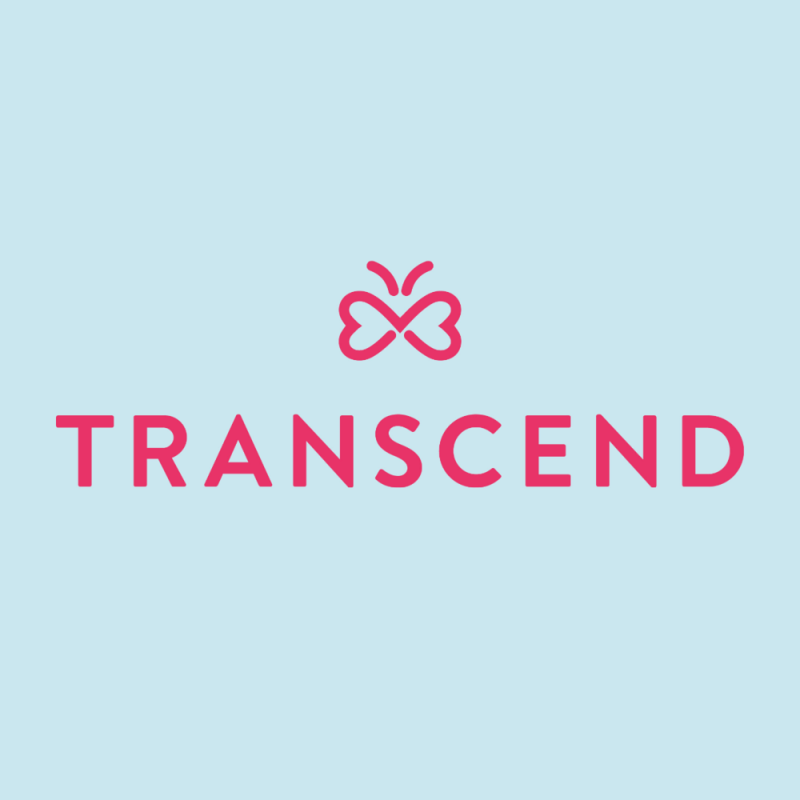
Transcend Australia
An extensive index of resources from our key partner, the peak body in Australia for trans family support, Transcend Australia.
Website
Transition Resources - the Gender Centre
Resources on transitioning, being trans, gender affirming healthcare and more.
Website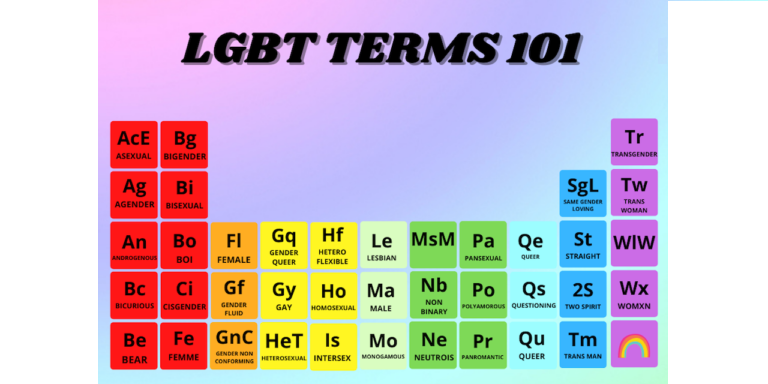
LGBT Terminology 101
A brief list of correct terminology, definitions and uses for common identities within the LGBTQ+ community.
Website
Twenty10 GLCS
A massive list of resources hosted by Twenty 10, one of our partner organisations.
Website
AusPATH Position Statements
AusPATH is the peak body for the healthcare and wellbeing of trans people nationally.
Website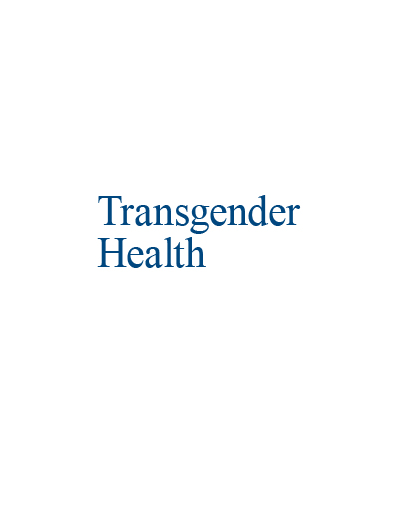
Transgender Health
The First Peer-Reviewed Quarterly Journal Solely Focused on Trans Healthcare
WebsiteSupport Services - Australia

Transcend Australia
Our key partner, Transcend Australia is the peak body providing family support to trans families in Australia.
Website
the Gender Centre
Based in New South Wales, the Gender Centre is committed to improving services and providing community to young trans people.
Website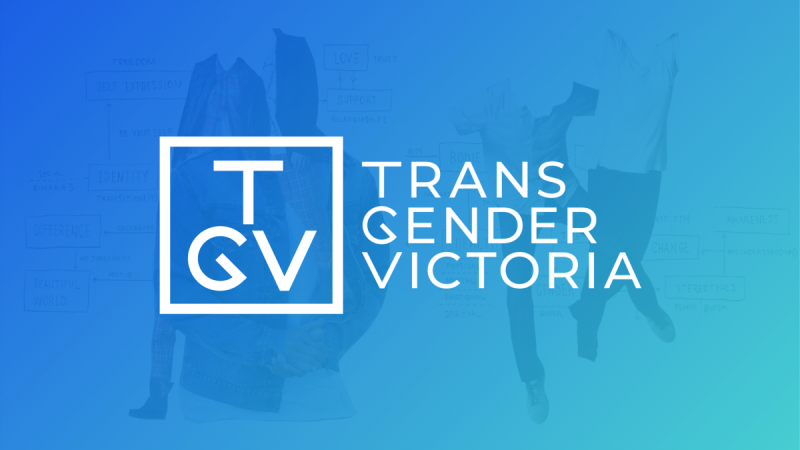
Transgender Victoria
Transgender Victoria is the state’s leading body for trans and gender diverse people, advocating for justice and inclusion in society.
Website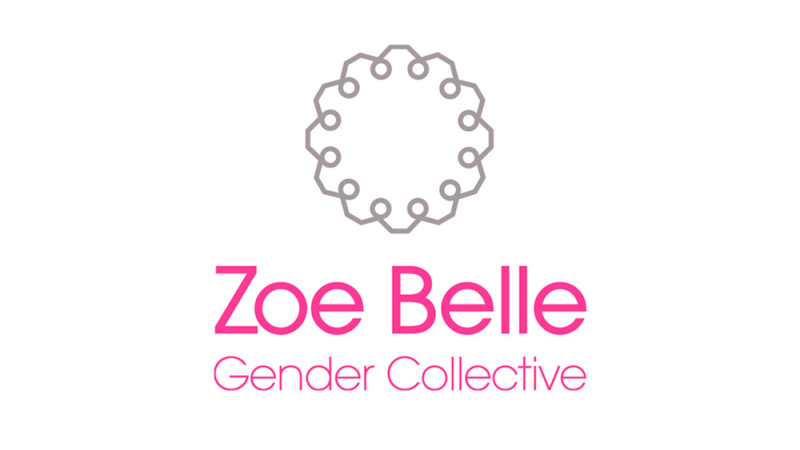
Zoe Belle Gender Collective
Led by trans people, the Zoe Belle Gender Collective is committed to improving the health and wellbeing of trans and gender diverse people.
Website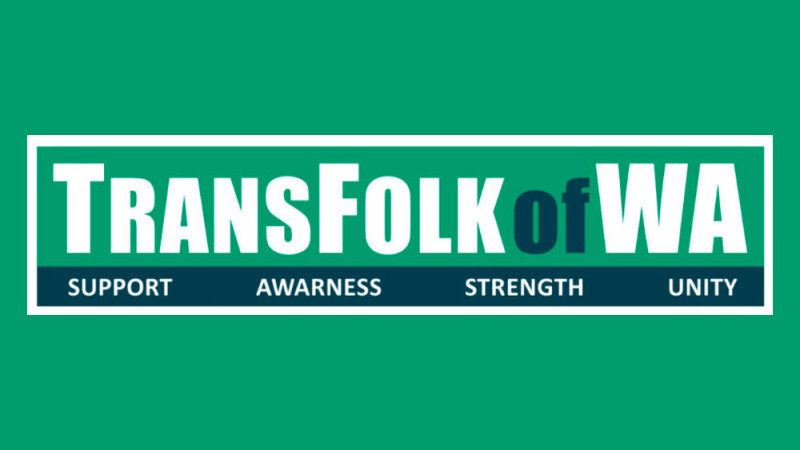
Transfolk of WA
Transfolk of WA is a support organisation which runs events, workshops, and services for the trans community in Western Australia.
Website
Twenty10
Twenty10 is a support provider in NSW, providing services including housing, mental health, counselling and social support, for LGBTQIA+ people under 25.
Website
Minus 18
Minus 18 is a national organisation providing support and education to trans youth, alongside workshops and education for schools and workplaces, aiming to empower and support LGBTQ+ youth.
Website
Equality Australia
Equality Australia is a nationwide organisation campaigning for the rights and protections of LGBTQ+ people in Australia.
Website
ACON
ACON is a NSW-based organisation centred around health support for LGBTQ+ people, specifically around HIV prevention, protection and treatment.
Website
Black Rainbow
Black Rainbow is a support and advocacy organisation specialising in the health and wellbeing of Indigenous LGBTQ+ people.
Website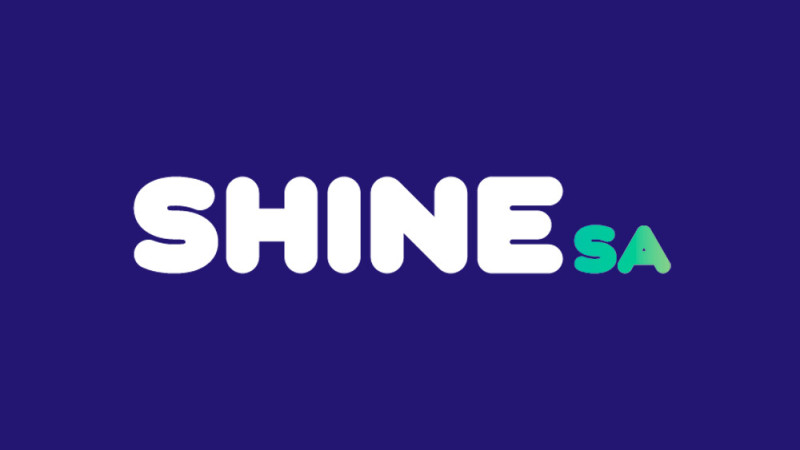
Shine SA
Shine SA is a South Australian organisation providing sexual health and relationship wellbeing support for LGBTQ+ people, as well as professional training for workplaces, and a range of other support services.
Website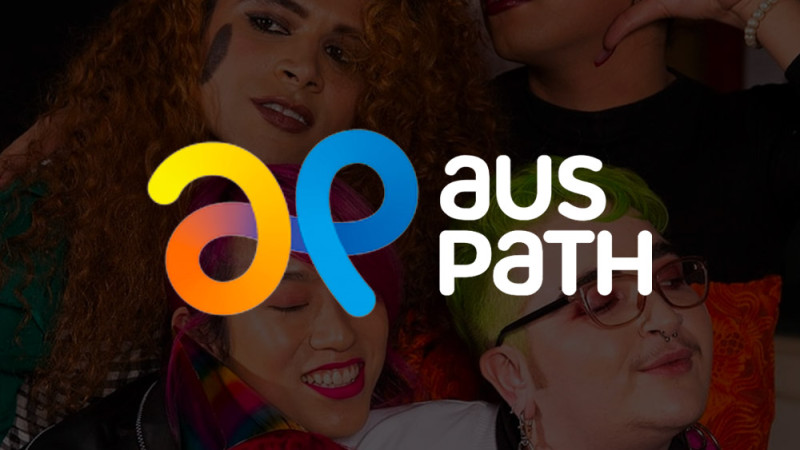
AusPATH - Australian Professional Association for Trans Health
AusPATH is the nation-leading body to support the strengthening of health services for trans people.
Website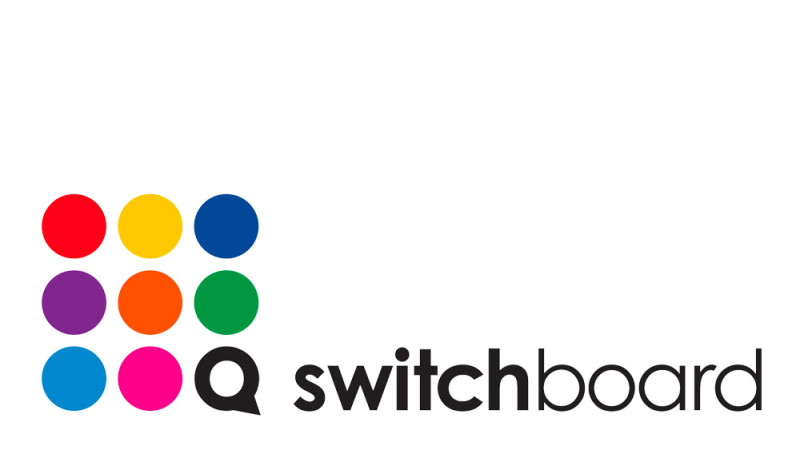
Switchboard Victoria
Switchboard Victoria is a peer-support network for LGBTQ+ people in Victoria, providing a large range of services.
Website
FYA - Foundation for Young Australians
FYA is an organisation whose mission is to back young people in Australia, through their campaigning, advocacy, and in helping young people to strive for justice, empowering them to make change.
WebsiteSupport Services - United Kingdom & Europe

Mermaids
Mermaids is a UK based organisation founded by parents of trans children, which is committed to supporting young trans and gender diverse people until they turn twenty.
Website
Gender Identity Research & Education Society (GIRES)
GIRES is an organisation which serves the purpose of improving the lives of trans and gender diverse people, through research, leading to policy development to have tangible impact.
Website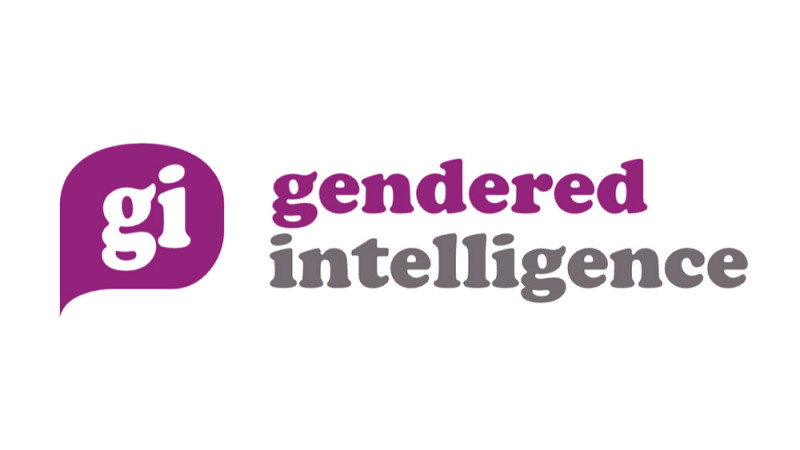
Gendered Intelligence
Gendered Intelligence is a trans-led grassroots organisation aiming to provide public engagement services alongside community campaigns.
Website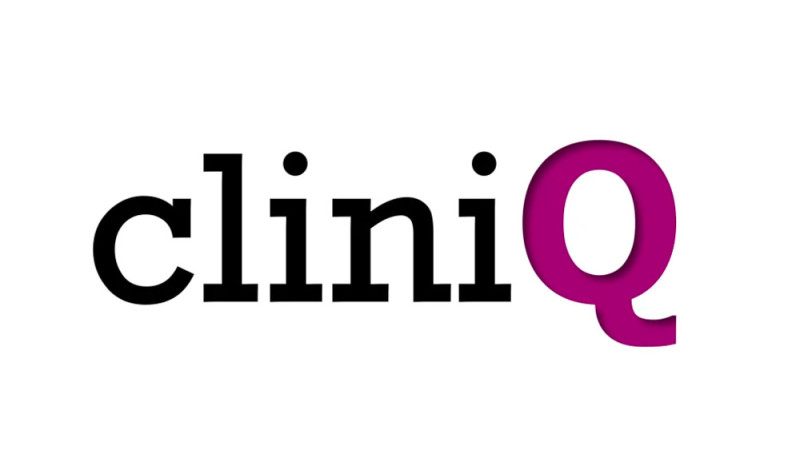
CliniQ
CliniQ is a holistic wellbeing and sexual health service centred on trans, gender diverse and non binary people.
Website
Switchboard LGBT+ Helpline
Switchboard UK is a helpline specifically for LGBTQ+ people, offering confidential support calls and chatrooms with qualified professionals, including community members.
Website
Mosaic Trust
Mosaic Trust is an organisation focussed on finding community for young LGBTQ+ people in London, offering services for young LGBTQ+ people, parents & guardians, and professionals looking to support.
Website
My Genderation
My Genderation is a film project pioneering in films telling authentic trans stories, made for everyone, by trans people.
WebsiteSupport Services - United States of America & Canada

GLAAD
GLAAD works through a range of medias to project stories promoting acceptance and inclusion, improving the societal acceptance of LGBTQ+ people.
Website
Rainbow Health Ontario
Rainbow Health Ontario is a service focussed on LGBTQ+ healthcare, committed to providing opportunities for health services to improve for affirming care.
Website
Trans Families
Trans Families is a support organisation for families of trans, gender diverse and non binary teenagers, aiming to guide them through coming out, as well as transitioning. Trans Families also provides youth leadership programs for trans youth.
Website
